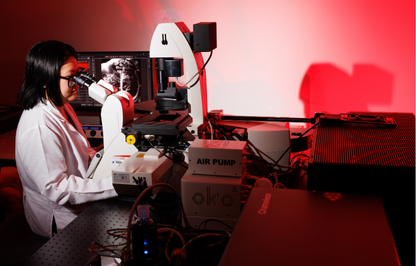
For patients with ductal carcinoma in situ (DCIS), a pre-cancer that can show up in mammograms but is different from breast cancer, the standard of care has long been the same as for breast cancer: mastectomies or lumpectomies, often followed by radiation. This invasive approach brings many risks, but research by Duke Surgery faculty is exploring ways to limit those risks.
Shelley Hwang, MD, MPH, Mary and Deryl Hart Distinguished Professor of Surgery, is the principal investigator of the Comparing an Operation to Monitoring, with or without Endocrine Therapy (COMET) study, a large, national clinical trial exploring whether “active monitoring” can be a safe and effective alternative to surgery for women with low-risk DCIS. Jeffrey Marks, PhD, Joseph W. and Dorothy W. Beard Distinguished Professor of Experimental Surgery, is also a contributing author to the study. Active monitoring is a less invasive approach in which patients have twice-yearly mammograms that allow their doctors to see if the cells become cancerous.
Dr. Hwang and her fellow researchers compared the outcomes of nearly a thousand patients who received either surgery with radiation or active monitoring. In a report published in JAMA in December 2024, Dr. Hwang and her colleagues concluded that active monitoring can be a safe and effective approach for DCIS, decreasing high-risk procedures and increasing women’s quality of life. She is now working to gather the longer-term data needed to definitively establish that approach as the standard of care for DCIS. At the same time, Dr. Hwang is leading an initiative through the National Cancer Institute’s Cancer Moonshot Program that aims to enhance care for DCIS patients by increasing our understanding about which cell clusters are cancerous.
“Surgery has consequences that patients may live with long after treatment,” she said. “We can’t ignore these effects that our patients experience that impact their quality of life.”